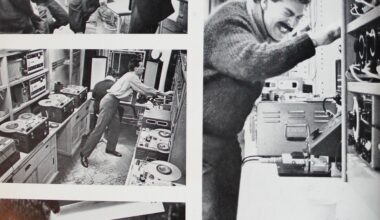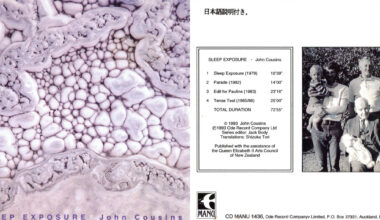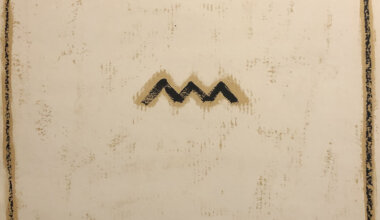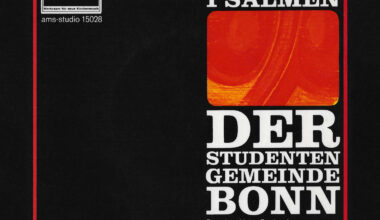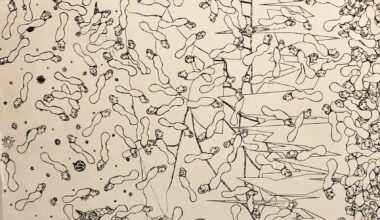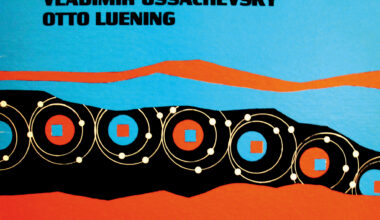60 years ago, Edgard Varèse’s groundbreaking ‘Poème électronique’ made its debut at the Brussels world’s fair. Our resident archivist casts a beady ear over its often overlooked first vinyl release

The ‘Memories Aux Bruxelle’ compilation isn’t rare. Released in 1959, you can pick it up today, in pretty good condition, for less than £20. It’s interesting because it’s the first time Edgard Varese’s ‘Poème Electronique’ was made available.
The album was released on Carlton Records, an American label set up in 1957 by a former A&R guy at RCA. They released all sorts, including a whole series of spoken word ‘Hear How’ records of tips and advice, like ‘Hear How To Plan The Perfect Dinner Party’ and ‘Hear How To Achieve Sexual Harmony In Marriage’. They also put out some of the first Kenny Rogers records, as well as lots of easy listening and pop music.
I think they treated ‘Memories Aux Bruxelle’ as a novelty record, it certainly wasn’t intended as a document of academic high art electronic music. Each pavilion at the Brussels World’s Fair, would have its own theme playing as people looked round, and this record gathered some of them together. There’s music from various pavilions featured here, there’s also a piece played by the band of the Belgian Garde Civique, or Civic Police, as they marched through the grounds, music from the French restaurant, from the Belgian Congo – this was before independence, of course – it’s quite a mixed bag.
On the record, ‘Poème Électronique’ is squeezed between ‘Marche Grande’, performed by the “150 Man Choir And Band Of The Army Of The USSR”, and ‘Carillon Music Of The Vatican Pavilion’. A carillon, by the way, is an electro-mechanical instrument that plays bells.
‘Poème Électronique’ isn’t credited with its proper title on the album. It’s buried on side two, and called ‘Electronic Music From The Netherlands Pavilion’, which wasn’t even a Pavilion at the fair! Varèse’s piece was commissioned for the Philips Pavilion, the electronics company, who were based in the Netherlands. The pavillion was quite a sight in itself, having been designed by Le Corbusier.
Incidentally, John Cage composed quite a bit of music for carillon, and he went to the Brussels World’s Fair. The Philips Pavilion was an extraordinary event for electronic music, a really big moment. Varèse’s piece was played through 425 speakers, and moved around the space via a complex system of amp switching.
There’s a picture of the greats of avant-garde electronic music gathered together in the pavilion. John Cage is lying on the floor with Stockhausen sitting cross-legged next to him laughing. Mauricio Kagel, Luciano Berio, Henk Badings, Luc Ferrari, Henri Pousseur, Bruno Maderna, Earle Brown and André Boucourechliev are all there, hanging out and having a good time.
Henry Jacobs was there, too, though he’s not in the picture, I only know he was there because he told me. Iannis Xenakis was there too, but he isn’t in the picture either, he also composed some music for the Philips Pavilion, and he helped design the building as Le Corbusier’s assistant.
The sleeve notes are great, in that breathless sales pitch way you see on records from this era, although while they mention most of the other music on the record, ‘Poème Électronique’ is ignored.
“Indeed the Fair lives again,” they say. “For the music has not stopped. On a remarkable recording is an everlasting remembrance of the original music – as recorded in actual performances – presented as it was to those who were there.”
‘Poème Électronique’ was later released on the album ‘Music Of Edgard Varèse’ on Columbia Masterworks, in 1960. That’s considered the first “proper” release. It’s just been re-released on the triple CD boxset ‘The Complete Works Of Edgard Varèse’ on the Él label, which is well worth seeking out. It’s a real bargain too, you can get it for under £15. It also has the live recording of the premiere of his piece for orchestra and tape, ‘Déserts’, from 1952, which was booed by the audience who couldn’t cope with the avant-garde tape music parts.
